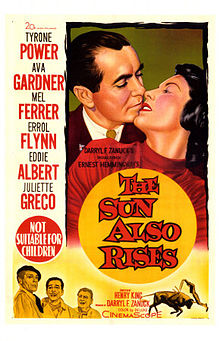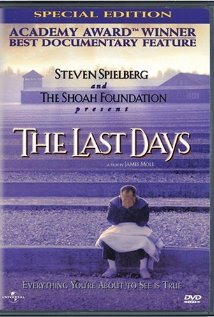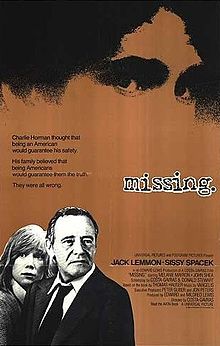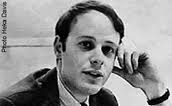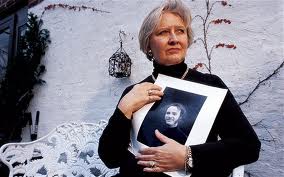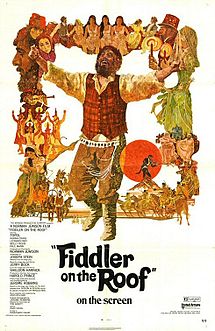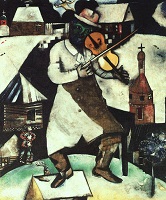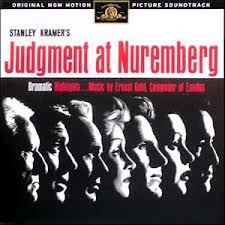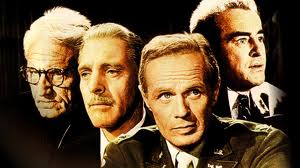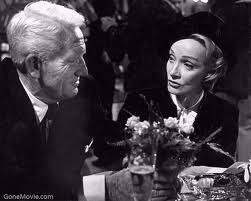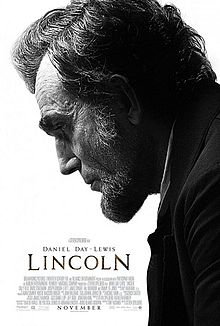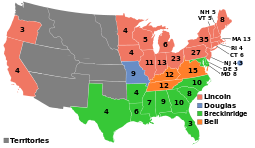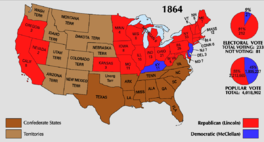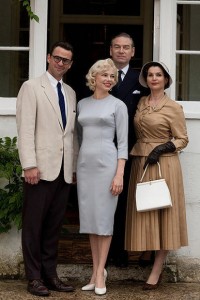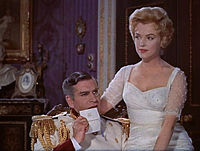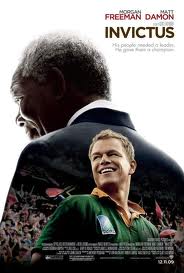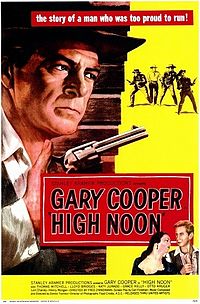 With the incredible lineup of being produced by Stanley Kramer—the director of Judgment at Nuremberg; being directed by Fred Zinnemann—who directed The Day of the Jackal; and starring Gary Cooper and Grace Kelly, High Noon may not fit in a strict sense within the genres of a Western or a shoot-out. The sheriff who appears here is not an invincible hero, but rather a middle-aged man trying—with his marriage as a turning point—to wash his hands of the life of earning money with a gun. The reason why he is drawn into a shoot-out is that, just when the wedding ceremony is held and he plans to depart to a town to the east, he receives news that a criminal who he had arrested in his former days was released, and this criminal wants to “settle the score” with the men who sent him to prison—the sheriff, the town’s courtroom judge, and probably others; he and his gang will be arriving at the town’s station at noon to kill.
With the incredible lineup of being produced by Stanley Kramer—the director of Judgment at Nuremberg; being directed by Fred Zinnemann—who directed The Day of the Jackal; and starring Gary Cooper and Grace Kelly, High Noon may not fit in a strict sense within the genres of a Western or a shoot-out. The sheriff who appears here is not an invincible hero, but rather a middle-aged man trying—with his marriage as a turning point—to wash his hands of the life of earning money with a gun. The reason why he is drawn into a shoot-out is that, just when the wedding ceremony is held and he plans to depart to a town to the east, he receives news that a criminal who he had arrested in his former days was released, and this criminal wants to “settle the score” with the men who sent him to prison—the sheriff, the town’s courtroom judge, and probably others; he and his gang will be arriving at the town’s station at noon to kill.
Of course, the sheriff could have just continued leaving for the east, but he chooses to come back to town to face the criminal and his three companions in a showdown. His wife, whose father and older brother were killed, had converted to being a Quaker who absolutely rejects violence, and she tells her husband that she will leave for the east by herself if he chooses to fight. Since the sheriff’s replacement hasn’t arrive at the town yet, the sheriff asks the townspeople to fight with him, but the vice-sheriff, a former sheriff, the town mayor, and the townspeople all hesitate and don’t support him. The judge flees, saying, “I can probably find work somewhere else.” Although the sheriff kept the town peaceful, and people praised him as being the “best sheriff,” now the townspeople complain, “A certain degree of crime should be allowed in order to bring money into town. The sheriff completely wiped out crime.” Faced with this criticism, including, “Why did the sheriff come back to town? He should’ve just kept going east,” the sheriff is left to face the four alone in a showdown; he writes his will as he waits for the gang to arrive on the noon train, and for his lonely fight to begin.
This movie is 85 minutes long, while the movie was made to start around 10:40 a.m.; in other words, the story progresses in real-time. The shoot-out scene is just in the last five minutes, and it is not flashy. Most of the movie is the sheriff talking with the townspeople. The sheriff is played by middle-aged Gary Cooper, who was past his peak as an actor, and it is quite sad watching the long shot of his figure walking weakly alone down an empty street.
This movie was made in 1952, which was in the height of the Red Scare in the United States. Senator Joseph McCarthy of the right-wing Republican Party played a central role in the Red Scare—which was the political activity to remove people thought to be communists or communist party sympathizers—and examples of politicians who cooperated with McCarthy include Richard Nixon and Ronald Reagan. Hollywood, which was considered to have many people with left-wing ideology, became one of the targets. Carl Foreman, who wrote the screenplay for the High Noon, was also thought to be communist, and was interrogated by the House Un-American Activities Committee. He acknowledged that he had joined the Communist Party briefly before the war, but asserted that he no longer had any connection to it. His biggest fear in the interrogation was that he’d be forced to betray Communist Party sympathizers. Carl Foreman, who refused to be an informant, felt he was in danger and fled to Great Britain. Charlie Chaplin, another cineaste, was expelled from the U.S., also due to the Red Scare prosecution.
Carl Foreman later started working for renowned British director David Lean, and won Best Adapted Screenplay at the 30th Academy Awards for The Bridge on the River Kwai directed by David Lean; however, Foreman’s name was not officially recognized due to the Red Scare at the time, and David Lean received the Best Adapted Screenplay award. Carl Foreman’s name was acknowledged and given credit for the first time after he died, and he was finally awarded the Oscar posthumously.
A similar thing happened to Dalton Trumbo, the screenwriter of Roman Holiday. Because Dalton Trumbo was expelled due to the Red Scare, he borrowed the name of his friend Ian McLellan Hunter for the job, and he wrote the screenplay for Roman Holiday under the name Hunter. This movie was a big success, and the Academy of Motion Picture Arts and Sciences—unaware of the circumstances—awarded Hunter the Academy Award for Best Story. It was not until the 1990s that the Academy decided to correct their errors during the Cold War due to things such as the Red Scare. Dalton Trumbo was one of the people who had his honor restored. Trumbo had already died in 1976, but the Academy decided to give Trumbo an Academy Award in 1993. However, since Hunter’s son refused to hand over the Oscar that was given to his father Hunter, the Oscar that Trumbo’s widow received was a different one made at a separate occasion. Many terrible things happened during the Cold War, but things were finally reevaluated when the Democratic Party, after 12 years, at last took control of the administration with President Clinton. It may be said that America was a very different nation before and after Clinton. Times had changed.
The Red Scare created lots of fear in Hollywood, and within this, there were many people who agreed to a plea bargain to inform on others for the security of their own work. We now know that Elia Kazan, Gary Cooper, and Walt Disney were examples of these people.
Even though High Noon is split between positive and negative opinions (“It is a Western with profound criticism that includes insights on human psychology,” versus “This is a movie made by cowardly traitors who do not believe in the righteousness of Americans.”), it was the front-runner for the Academy Award for Best Picture; however, it ended up losing to The Greatest Show on Earth. It is said that the Academy members hesitated to vote for director Fred Zinnemann and screenwriter Carl Foreman—both known to be liberal—at the height of the Red Scare. The movie has a gloomy feeling of the era of the Red Scare, but it would be an overstatement to say that the movie was a criticism of McCarthyism. It was not until the late 1950s that the fear of communism started to fade, and the 1970s that people were able to express their rejection of the Red Scare through art; however, victims had to wait until the 1990s to have their honor publicly restored.

